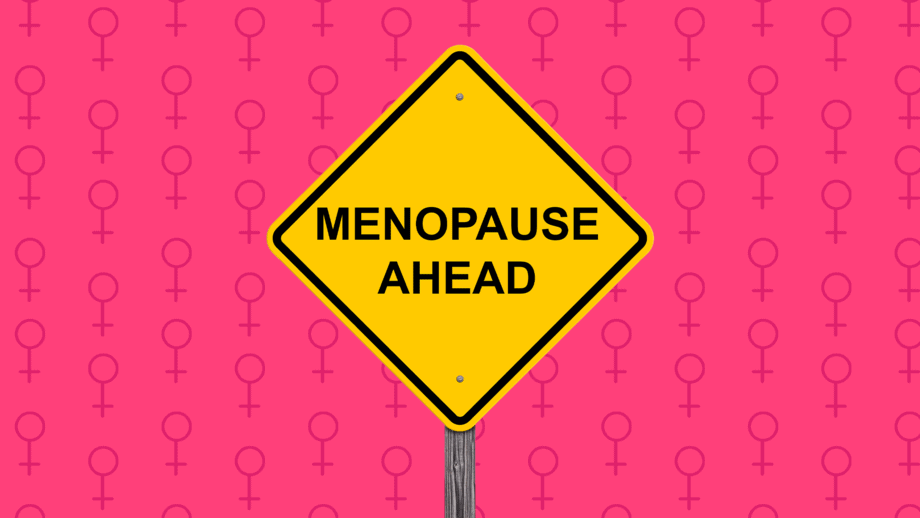Can Menopause Affect Sexual Health And Function?

Are you experiencing the frustrating effects of menopause on your sexual health and function? Well, you’re not alone. Many women go through a challenging transition during menopause that can impact their desire, arousal, and ability to orgasm. But don’t worry – there are solutions out there to help you navigate this period with grace and confidence.
In this article, we’ll explore how menopause can affect your sexual wellness and discuss various treatment options available to improve your overall satisfaction in the bedroom. From understanding the changes happening in your body to exploring communication strategies with your partner, we’ve got you covered.
So, if you’re ready to embrace sexual wellness after menopause and regain control over your intimate life, keep reading!
Key Takeaways
- Menopause can have a significant impact on sexual health, including difficulty achieving orgasm and changes in orgasmic intensity.
- Strategies such as experimentation, open communication, and the use of lubricants/moisturizers can help improve the sexual experience during menopause.
- Menopause is an individualized experience, and finding what works best for each woman is important.
- Open and honest communication, as well as emotional support, are crucial for navigating the changes in sexual health during menopause and exploring new ways to connect physically and emotionally with a partner.
Understanding the Menopausal Transition
The rollercoaster of emotions that come with the menopausal transition can leave you feeling bewildered and overwhelmed. It’s important to understand what’s happening during this time in order to cope with the changes.
Menopause marks the end of a woman’s reproductive years, typically occurring between the ages of 45 and 55. During this stage, your ovaries produce less estrogen and progesterone, leading to irregular periods and eventually stopping altogether. This hormonal shift can have a significant impact on your sexual health and function.
You may experience a decrease in libido, vaginal dryness, and discomfort during intercourse. These changes can be distressing, but there are various treatment options available that can help alleviate symptoms and improve your overall sexual well-being during this transitional phase of life.
Menopause and Sexual Desire
Are you experiencing a decrease in libido since entering menopause? This is a common symptom that many women go through during this stage of life.
It’s important to understand that decreased sexual desire can be influenced by a combination of factors, including hormonal changes and psychological aspects such as stress or relationship issues.
Taking care of your emotional well-being and addressing any underlying psychological factors can help improve your overall sexual satisfaction during this transitional period.
Decreased Libido
Explore how menopause can impact your sexual desire and discover the potential reasons behind a decrease in libido.
- Hormonal changes: During menopause, there’s a decrease in estrogen levels, which can lead to vaginal dryness and discomfort during sex. This physical discomfort may reduce your desire for sexual activity.
- Psychological factors: Menopause can bring about emotional changes like mood swings, anxiety, and depression. These psychological factors can contribute to a decreased interest in sex.
- Fatigue and sleep disturbances: Many women experience insomnia or disrupted sleep patterns during menopause. Lack of quality sleep can lead to fatigue and low energy levels, making it difficult to feel sexually aroused.
- Relationship dynamics: Menopause may coincide with other life events such as empty nest syndrome or aging parents, which can create stress within relationships. This added stress can affect sexual desire.
Understanding these potential reasons behind decreased libido during menopause is important for addressing any concerns you may have about your sexual health and seeking appropriate support if needed.
Psychological Factors and Emotional Well-being
Discover how your emotional well-being can play a crucial role in maintaining a fulfilling and satisfying sex life during this transformative phase of life. Menopause brings about numerous changes, both physically and emotionally, that can impact your sexual health and function.
Psychological factors such as stress, anxiety, and depression can contribute to a decreased libido and overall sexual satisfaction. It is important to prioritize self-care and address any emotional issues that may arise during this time.
Engaging in activities that promote relaxation, such as yoga or meditation, can help reduce stress levels and improve your mood. Additionally, open communication with your partner about your emotions and desires is key to fostering intimacy and strengthening the bond between you two.
Remember to seek support from healthcare professionals who specialize in menopause if needed. Taking care of your emotional well-being is vital for maintaining a healthy sex life throughout menopause.
Menopause and Vaginal Dryness
Feeling a little dry down there? Don’t worry, menopause can sometimes cause vaginal dryness, but there are solutions to help you feel comfortable and confident in the bedroom again.
Vaginal dryness is a common symptom of menopause, occurring due to the decrease in estrogen levels. This can lead to discomfort during sexual intercourse and may even affect your desire for intimacy.
To address this issue, consider the following options:
- Use lubricants: Water-based lubricants can provide temporary relief by reducing friction and increasing comfort.
- Try vaginal moisturizers: These products can be applied regularly to nourish and hydrate the vaginal tissues, helping to alleviate dryness over time.
- Explore hormone replacement therapy (HRT): Discuss with your healthcare provider whether HRT might be suitable for you, as it can help replenish estrogen levels and relieve symptoms.
Remember, every woman’s experience with menopause is unique, so finding the right solution may require some trial and error. Stay positive and open-minded as you navigate through this phase of life!
Menopause and Sexual Arousal
Are you experiencing changes in blood flow and sensation during menopause?
These changes can affect sexual arousal and response.
Additionally, psychological factors such as stress or anxiety may also impact your sexual desire and pleasure.
Understanding these factors can help you navigate through any challenges that may arise during this stage of life.
Changes in Blood Flow and Sensation
Imagine how your sexual experience might be impacted during menopause as blood flow and sensation undergo changes. As you enter menopause, hormonal fluctuations can affect the blood vessels in your genital area, leading to reduced blood flow to the clitoris and vaginal tissues. This decrease in blood flow can result in decreased sensitivity and lubrication, making it more difficult to become sexually aroused.
Additionally, the decline in estrogen levels during menopause can lead to thinning of the vaginal walls, making them more prone to irritation or pain during intercourse. These changes can have a significant impact on your sexual pleasure and desire. However, there are various treatment options available such as hormone therapy or over-the-counter lubricants that can help alleviate these symptoms and maintain a satisfying sex life during this stage of life.
Psychological Factors and Sexual Response
Now that you understand how changes in blood flow and sensation can impact your sexual health during menopause, let’s delve into the influence of psychological factors on sexual response.
Menopause can bring about a range of emotions, including anxiety, depression, and decreased self-esteem. These changes in mood can have a significant impact on your sexual desire and arousal.
Stress from other aspects of life such as work or relationships can also contribute to difficulties with sexual function.
It’s important to recognize that these psychological factors are normal and experienced by many women during this stage of life. By addressing any emotional concerns through therapy or counseling, you can improve your overall well-being and regain control over your sexuality.
Remember, taking care of your mental health is just as crucial as caring for your physical well-being during menopause.
Menopause and Orgasm
Are you experiencing difficulty achieving orgasm since entering menopause?
Menopause can impact the ability to reach climax, with some women reporting a decrease in sexual satisfaction.
Additionally, changes in orgasmic intensity may occur during this time, leading to either increased or decreased sensations.
Difficulty Achieving Orgasm
Feeling frustrated because you can’t achieve orgasm like you used to during menopause? You’re not alone. Many women experience difficulty reaching orgasm during this stage of life. The hormonal changes that occur during menopause can affect your sexual health and function, including your ability to climax. But don’t worry, there are ways to address this issue and enhance your sexual satisfaction.
One possible solution is to try different techniques or positions that may increase stimulation and pleasure. Communication with your partner is key, as they can provide support and understanding during this time of transition. Additionally, using lubricants or moisturizers can help alleviate vaginal dryness, which may contribute to difficulty achieving orgasm.
Here’s a table outlining some strategies that may be helpful in improving your sexual experience:
| Strategies | Description |
|---|---|
| Experimentation | Trying new techniques or positions that increase stimulation |
| Open communication | Talking openly with your partner about your desires and concerns |
| Use of lubricants/moisturizers | Using these products to alleviate vaginal dryness |
Remember, every woman’s experience with menopause is unique, so it’s important to find what works best for you. Don’t hesitate to seek guidance from healthcare professionals who specialize in menopause-related concerns.
Changes in Orgasmic Intensity
Experiencing a decline in the intensity of your orgasms? Rest assured, there are ways to enhance and revitalize this pleasurable aspect of your sexual experience. Menopause can bring about changes in orgasmic intensity, but with some adjustments and techniques, you can still enjoy satisfying climaxes. Here are three strategies to consider:
- Experiment with different types of stimulation: Exploring new erogenous zones or trying out different forms of stimulation, such as using vibrators or incorporating fantasies, can help intensify your orgasms.
- Strengthen pelvic floor muscles: Regularly practicing Kegel exercises can enhance blood flow and sensitivity in the genital area, leading to stronger orgasms.
- Communicate with your partner: Openly discussing your desires and preferences with your partner can lead to improved sexual experiences. Sharing what feels good and exploring new techniques together can reignite the intensity of your orgasms.
Remember, menopause may bring changes, but it doesn’t have to mean the end of pleasurable orgasms. By being proactive and open-minded, you can reclaim and even enhance this important aspect of your sexual health.
Communication and Relationships During Menopause
Maintaining open and honest communication about your changing needs and desires can greatly enhance intimacy and strengthen your relationship during menopause. It’s important to remember that both you and your partner may experience a range of emotions during this time, including frustration, sadness, or confusion. By openly discussing these feelings, you can address any concerns or misunderstandings that may arise. Additionally, exploring new ways to connect physically and emotionally can help reignite passion in the bedroom. Consider trying different positions or incorporating sensual activities like massages or baths into your routine. Remember, menopause is a natural part of life and it doesn’t have to mean the end of a fulfilling intimate relationship. Together, you can navigate this transition with love and understanding.
| Positive Effects | Negative Effects |
|---|---|
| Increased trust | Emotional distance |
| Deeper connection | Frustration |
| Improved communication | Lack of desire |
| Enhanced intimacy | Resentment |
This table highlights some potential emotional responses that may arise during menopause but also emphasizes the positive effects that open communication can have on maintaining a healthy relationship.
Treatment Options for Sexual Health during Menopause
In this discussion, we’ll explore the treatment options available for managing sexual health during menopause. You can consider Hormone Replacement Therapy (HRT) as one option. It involves replacing the declining hormones with synthetic ones to alleviate symptoms and improve sexual function. Alternatively, you can also explore non-hormonal treatment options. These options focus on addressing specific concerns and providing relief without introducing additional hormones into your body.
Hormone Replacement Therapy
Taking hormone replacement therapy can help you manage the symptoms of menopause and potentially improve your sexual health and function. Hormone replacement therapy (HRT) involves taking medications that contain hormones to replace the ones your body no longer produces after menopause.
These hormones can help alleviate vaginal dryness, increase vaginal lubrication, and improve overall sexual satisfaction. HRT can also boost libido by restoring estrogen levels in your body. Additionally, this treatment option may reduce hot flashes and night sweats, which can negatively impact your sexual desire and comfort during intercourse.
It’s important to note that hormone replacement therapy has potential risks and side effects, so it’s crucial to discuss with your healthcare provider if it’s a suitable option for you based on your individual needs and medical history.
Non-Hormonal Treatment Options
Now that you know about Hormone Replacement Therapy, let’s explore some non-hormonal treatment options for managing menopause-related sexual health issues. These alternatives can be just as effective in alleviating symptoms and improving sexual function without the use of hormones.
- Lubricants and moisturizers: Using water-based lubricants during sex can reduce discomfort caused by vaginal dryness, while moisturizers can help keep the vaginal tissues hydrated throughout the day.
- Lifestyle changes: Certain lifestyle modifications such as regular exercise, a balanced diet, stress reduction techniques like yoga or meditation, and avoiding smoking or excessive alcohol consumption can positively impact your sexual health.
- Pelvic floor exercises: Strengthening the pelvic floor muscles through exercises like Kegels can enhance blood flow to the genital area, improve bladder control, and increase overall sexual satisfaction.
Remember, exploring these non-hormonal options may provide you with a range of choices to manage your sexual health during menopause effectively.
Embracing Sexual Wellness after Menopause
Are you ready to embrace sexual wellness after menopause? It’s time to focus on self-care and self-exploration. Discover what brings you pleasure and take the time to explore your own desires.
Additionally, don’t forget about relationships and intimacy beyond reproduction. Menopause doesn’t mean the end of intimacy; it’s an opportunity to deepen emotional connections with your partner and find new ways to experience pleasure together.
Self-Care and Self-Exploration
Explore your own desires and needs during menopause to prioritize self-care and enhance sexual health. As you navigate this new stage in life, it’s essential to take the time for self-exploration and embrace your sexuality. Here are four ways to engage in self-care and enhance your sexual well-being:
- Educate yourself: Learn about the changes that occur during menopause and how they can impact your sexual health. Understanding what’s happening in your body will help you feel more confident and empowered.
- Communicate with your partner: Openly discuss any concerns or changes you may be experiencing with your partner. Effective communication can foster understanding, support, and intimacy.
- Experiment with different techniques: Try new positions, lubricants, or sex toys to discover what feels pleasurable for you now. Menopause may require some adjustments, but it also presents an opportunity for exploration.
- Prioritize self-pleasure: Take time for solo play and explore what brings you pleasure individually. Masturbation can be a valuable tool in reconnecting with your body’s changing needs.
By prioritizing self-care and embracing self-exploration, you can enhance your sexual health during menopause and continue to enjoy a fulfilling intimate life.
Relationships and Intimacy Beyond Reproduction
Enhancing your relationships and deepening intimacy during this transformative stage of life can bring new levels of joy and connection. Menopause is a time when you may experience changes in your sexual health and function, but it doesn’t mean that your relationships and intimacy don’t have to suffer. It’s important to communicate openly with your partner about what you’re going through and how it may affect your desires or comfort level.
Explore new ways of connecting intimately, such as focusing on emotional closeness, cuddling, or trying different forms of sexual activity that don’t rely solely on penetration. Remember that intimacy goes beyond reproduction, and there are many ways to cultivate a fulfilling and satisfying sexual relationship with your partner during menopause.
Don’t be afraid to seek support from a healthcare professional or therapist who specializes in menopause and sexual health if you need guidance or assistance.
Frequently Asked Questions
Can menopause cause a decrease in sexual desire?
Yes, menopause can cause a decrease in sexual desire. It is a common symptom due to hormonal changes. However, there are treatments available to help manage this issue and improve your sexual health.
How does menopause affect vaginal dryness?
Menopause can cause vaginal dryness due to a decrease in estrogen levels. This can lead to discomfort during sex and may require the use of lubricants. Talk to your doctor about treatment options.
Does menopause impact sexual arousal?
Yes, menopause can impact sexual arousal. The hormonal changes during menopause can lead to decreased libido and difficulty getting aroused. It’s important to communicate with your partner and explore different strategies for maintaining sexual satisfaction.
Can menopause affect a woman’s ability to orgasm?
Yes, menopause can affect a woman’s ability to orgasm. Hormonal changes during menopause can lead to decreased sensitivity and lubrication, making it more difficult to achieve orgasm. However, there are treatments available that can help improve sexual function.
How can menopause affect communication and relationships?
Menopause can affect communication and relationships due to hormonal changes, physical discomfort, and emotional shifts. It may lead to decreased libido, mood swings, and vaginal dryness, which can impact intimacy and connection with your partner.









